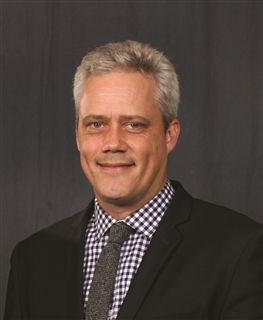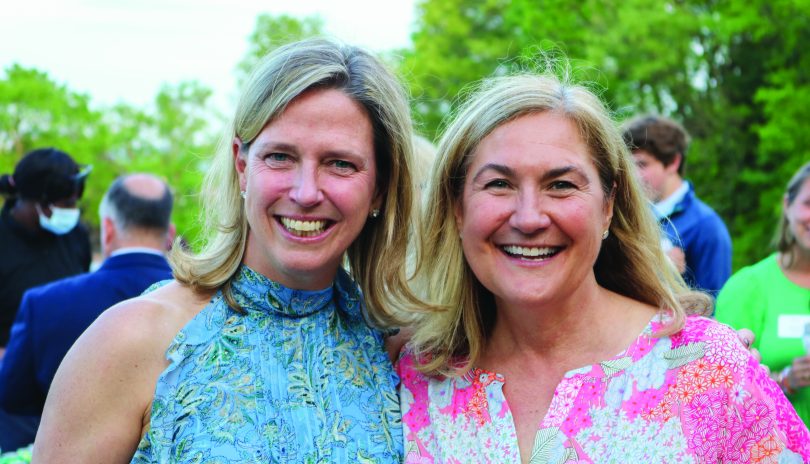Nick Jackson ’87 never envisioned himself in his current job as director of Toole Design Group’s Boston office. As a Vice President and Senior Planner for the firm, he has been designing sustainable transportation systems for the past 12 years, most recently for the City of Boston.Nick is highly regarded for his ability to find solutions to complex urban transportation problems, work for which he has received numerous awards and recognition, most recently the National Planning Excellence Award from the American Planning Association in 2015 for his Complete Streets Design Guidelines for Boston.
That’s a long way from his first job after college as a bicycle messenger in San Francisco, a job he calls “very exciting.” Still a regular bike commuter, he has lived car free for 15 years and is an avid proponent of walking, biking, and public transit to get around.
“I always had an interest in transportation,” he says, “but growing up I never saw myself having the career that I have now.”
Working in a profession that is relatively new, he has been able to draw on many different aspects of his past experience. His interest in sustainability and the environment goes back to his time at the Chewonki Maine Coast Semester he completed in high school. He started to become interested in city streets and spaces while in college after spending an urban studies semester in Chicago and having his first experience living in a big city. After his stint as a bicycle messenger, he moved back to Chicago where he worked for almost 10 years at the non-profit Active Transportation Alliance. Eventually he came to combine all these different interests—transportation, sustainability, and the urban environment—in his professional work.
He credits much of his success in finding new and creative solutions to urban transportation problems to the multidisciplinary foundation he received at DCD.
“DCD was important in giving me the belief that you need to understand yourself and to trust your own feelings. I think I’ve been able to do what I have with my career in part because of that foundation. I’ve been willing to take some risks and combine different things in new ways.”
“A lot of my job involves visuals, whether drawing, photography, or engineering designs. DCD fostered a strong balance of the arts, athletics, and academics. Now in my career I really combine all those different elements.”
His parents, who both taught at DCD for many years, also played a role in fostering his career success. The influence of Nick’s father, Tim ’58, now DCD’s business manager, who for years taught math, and his mother, Susie, a talented artist who taught Spanish at DCD, can be seen in how he approaches his own work.
“They certainly encouraged me to think about what I was good at, what I enjoyed doing. My job is very creative, requiring me to think creatively about redesigning public spaces, but I’m also running a business. I draw on both of those skill sets I inherited from my parents.”
Nick, who received the Charlotte Lowell Award at DCD, says that despite receiving many professional accolades over the years, being named the recipient of this year’s DCD Alumni Award is “special.”
“This one felt a little different,” he said. “DCD has been a huge part of my life and my family’s life.” All three of Nick’s siblings also went to DCD: Sam Jackson ’89, Sally Jackson ’92, and Susannah Jackson Sullivan ’97.
“I feel very lucky to have a relationship with DCD and to have it be a family affair. It means a lot to me to be recognized this way.”
Remembering his time as a student here, he said, “I have a lot of memories of the learning environment, the exciting discussions we had in class, and the great teachers who cared a lot about every student. There were a lot of things that at the time I didn’t really value because I didn’t know anything else. But since I have grown and met people from different walks of life I see how unique DCD is.”
Nick’s passion for his work, his community-minded approach to designing city streets and spaces that make life safe and enjoyable for everyone, both young and old, reflect DCD’s values and express its mission to provide a balanced curriculum, foster trust and encourage children to take risks, and promote thoughtful citizenship.
“What are the benefits of walking and cycling? There’s the obvious one of helping the environment, and it’s economical. But we overlook the other one—that it’s fun. How can we increase happiness in this world we’re all interested in? It’s important to create good spaces, where people feel comfortable walking around. If you do that, you’re along the way to making it a place where people want to live and raise their families.”







